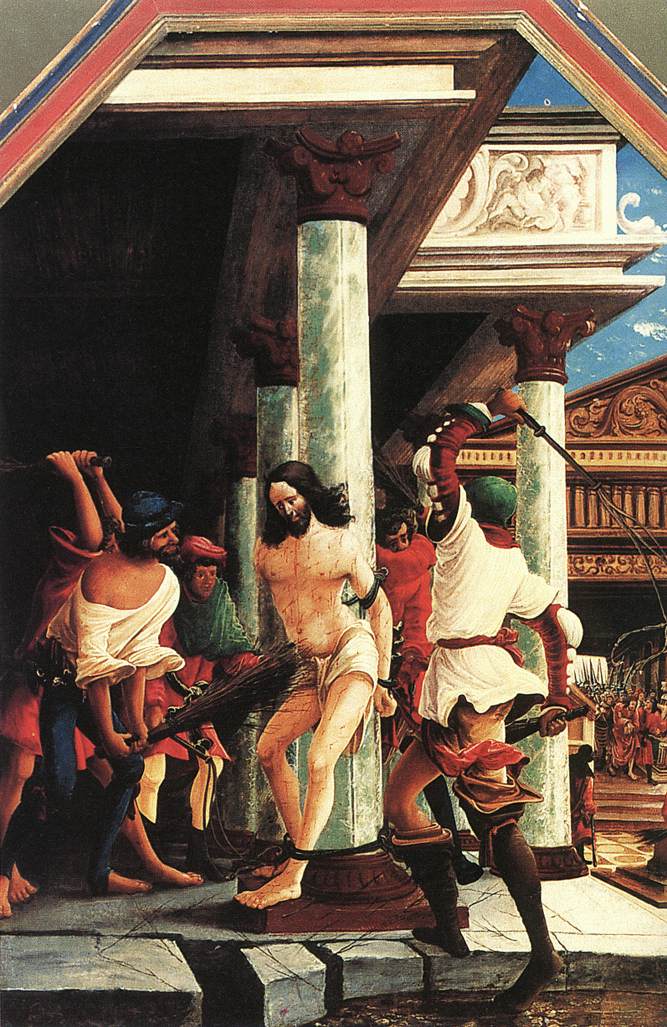Description
Albrecht Altdorfer's painting "The Flagellation of Christ" is a German Renaissance masterpiece featuring dramatic composition and exquisite detailed painting technique.
The painting measures 129 x 97 cm and was created in the year 1516. The work represents the moment when Jesus is scourged before his crucifixion, and shows Christ tied to a pillar while two soldiers whip him. At the top of the painting, a dark and stormy sky can be seen, adding a dramatic and gloomy tone to the scene.
Altdorfer's artistic style is unique and is characterized by the use of bright and contrasting colours, as well as detailed and painstaking painting technique. In this work, the artist uses a dark and earthy color palette to create a somber and dramatic atmosphere.
One of the most interesting aspects of painting is the composition. Altdorfer uses a perspective technique that makes the scene appear to be in three-dimensional space, adding a sense of depth and movement to the work. Furthermore, the artist uses the diagonal technique to guide the viewer through the scene, creating a sense of tension and dynamism.
The history of the painting is also fascinating. It is believed to have been commissioned by Emperor Maximilian I for his private chapel in Neuburg Castle. The work was later acquired by the Wittelsbach family and is currently in the collection of the Alte Pinakothek in Munich.
In short, Albrecht Altdorfer's "The Flagellation of Christ" is a masterpiece of the German Renaissance noted for its unique artistic style, dramatic composition, and detailed painting technique. The history of the painting also adds an interesting element to the work, making it a must-have for art lovers.

